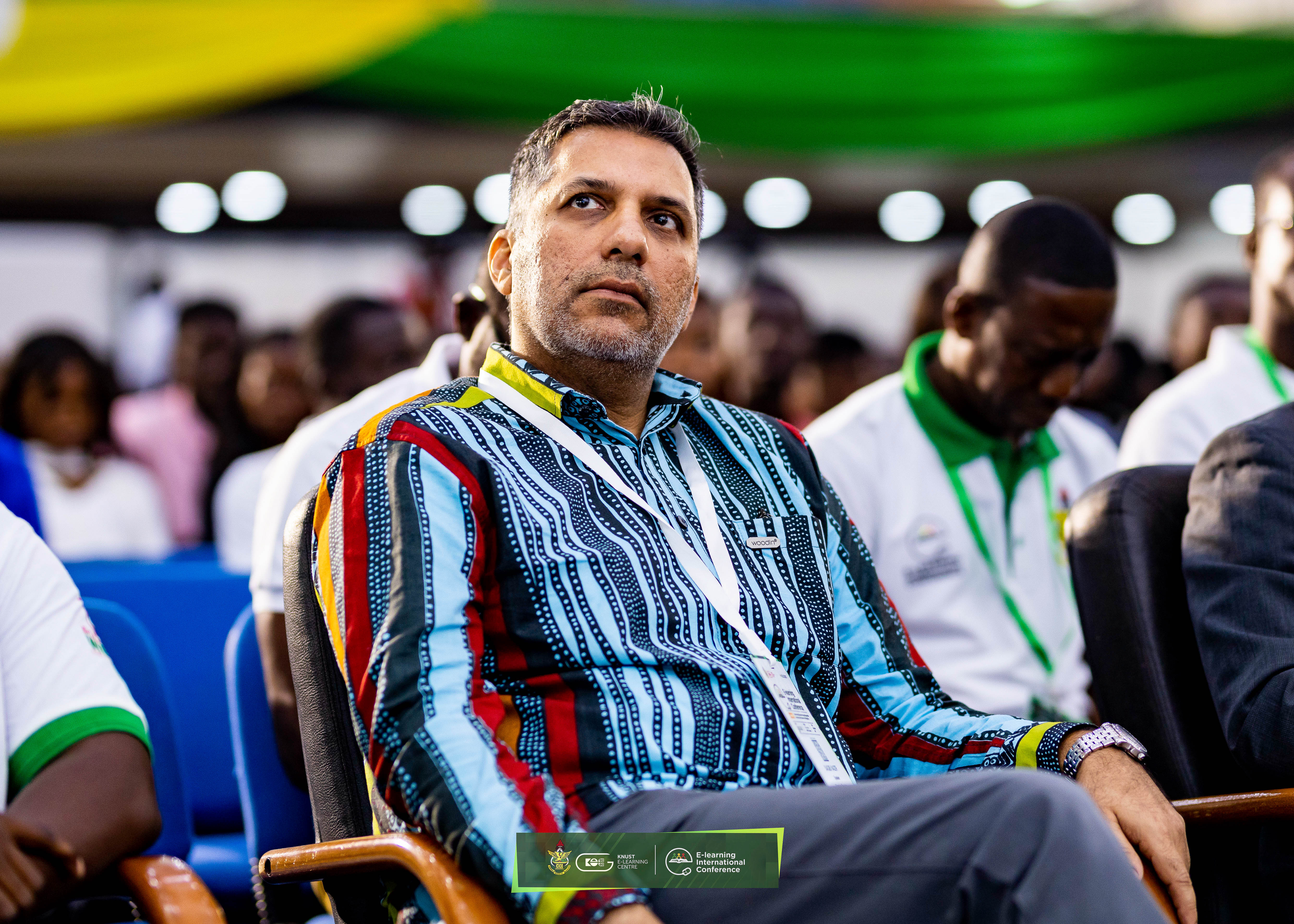KNUST Hosts Global Conference on Inclusive and Responsible E-Learning
The KNUST E-Learning Centre has opened its third E-Learning International Conference with a call to use technology to make education inclusive and responsible.
The conference brought together experts, educators, and policymakers from Ghana and around the world.
In his opening address, Professor Eric Appau Asante, Director of the KNUST E-Learning Centre, said the conference is meant to help people think deeply and act together to improve digital learning.
“This conference is not just an event,” he said. “It is a global classroom. It brings together thinkers from Ghana, Leeds, the Caribbean, and other places to shape education in a digital world. We must use digital tools to help every learner, everywhere.”
He added that the goal of the conference is to create clear plans that schools and governments can follow to make online learning better. “We are also launching the KNUST E-Learning Journal to help share research and best practices,” he said.
The Vice-Chancellor of KNUST, Professor Rita Akosua Dickson, was represented by the Pro Vice-Chancellor, Professor David Asamoah. He said the digital shift at KNUST began during the COVID-19 pandemic and has grown stronger. "Over 90% of our courses now have an online part.

We are offering online degrees, hybrid lectures, and using digital tools for tests. This is not just for convenience. It is a clear move to prepare for the future.”
He added, “We must ask, are we protecting student data? Are we designing systems that support all learners, including those with disabilities? These are the real questions.”
The keynote address was given by Dr. Margaret Korosec, Dean of Online and Digital Education at the University of Leeds.
She said innovation must not ignore accessibility.

“Technology without inclusion leaves people out,” she said. “But inclusion without innovation does not move us forward. We must design systems that support all students from how they apply to how they learn.”
In a special address, the Israeli Ambassador to Ghana, H.E. Roey Gilad, praised the growing partnership between Israeli and Ghanaian universities.
“Our relations with KNUST are strong,” he said. “Israel is proud to support the e-learning space here. This is only the beginning.”

FinTech entrepreneur Saqib Nazir shared how lessons from mobile technology and digital finance can help make education more inclusive. “By 2050, Africa’s population will grow fast. E-learning must be used now to reach young people before the gap becomes too wide,” he said.

Dr. Michael Gallagher from the University of Edinburgh and

Dr. Karen Rosemin from the University of the West Indies also spoke about inclusion, equity, and the future of digital learning.

The conference continues with workshops, panels, and the launch of partnerships aimed at shaping how Africa uses digital learning.
Published: 2nd August,2025 Source: KNUST E-Learning Centre
